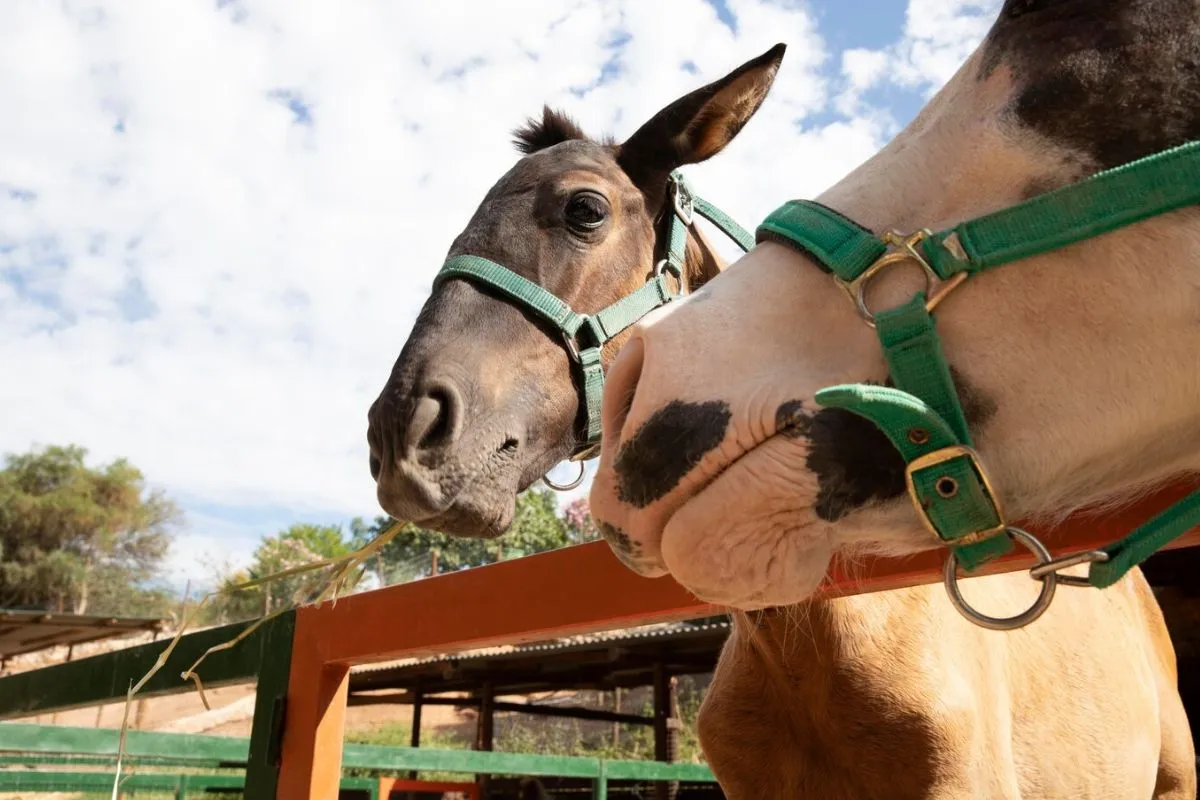Horses in small-scale farming play a crucial role in ensuring efficiency and sustainability. These resilient animals are an integral part of traditional agriculture, helping to manage land and execute various farming tasks.
Integrating horses into small-scale farming can significantly reduce the carbon footprint. Their use is not only environmentally friendly but also offers economic benefits to rural communities.
In this article, we’ll explore the advantages of using horses in small-scale farming. From field plowing to transporting goods, horses remain indispensable in agriculture.
The Role of Horses in Small-Scale Farming
Horses have been pivotal in agriculture for centuries, providing unmatched strength, endurance, and versatility that make them ideal working animals for small-scale farms. Their ability to perform various tasks, from plowing fields to transporting goods, showcases their indispensable role.
Horses are capable of working in diverse terrains where machinery might struggle, adding to their value on the farm. This adaptability ensures they remain a crucial part of agricultural practices even in modern times.
Beyond their physical capabilities, horses contribute to sustainable farming practices by helping maintain soil health and reducing dependence on fossil fuels. Their lighter footprint compared to heavy machinery prevents soil compaction, promoting better aeration and water infiltration. Additionally, horses’ manure serves as a natural fertilizer, enriching the soil with essential nutrients.
This organic approach aligns with sustainable farming goals, fostering healthier crop growth and reducing the need for chemical inputs.
Using horses can also preserve traditional farming techniques, which are often more eco-friendly and sustainable. These methods, honed over generations, emphasize harmony with the environment and resource conservation. By integrating horses into contemporary farming, we can uphold these valuable traditions while enhancing sustainability. This approach not only benefits the environment but also supports biodiversity and the resilience of farming systems.
Embracing horses in agriculture ensures that these time-honored practices continue to thrive, contributing to a greener future.
Advantages of Using Horses in Farming
Horses offer numerous advantages over mechanized equipment. They can access terrains that machines cannot and provide a more gentle impact on the soil.
Furthermore, horses are cost-effective. They do not require fuel, only feed, and their care costs are relatively low compared to machinery maintenance.
They also offer benefits beyond farming tasks, including manure production, which can be used as an organic fertilizer, enriching the soil.
Environmental Benefits
Horses contribute to a closed-loop system in farms. Their waste is a valuable resource that enriches the soil, enhancing its fertility and structure.
By avoiding heavy machinery, horses reduce soil compaction. This helps in maintaining soil aeration and water infiltration, essential for crop health.
Moreover, using horses minimizes greenhouse gas emissions, promoting a healthier ecosystem.
Economic Impacts
For many small-scale farmers, economic sustainability is paramount. Horses offer a cost-effective alternative to expensive machinery.
The initial investment for a horse is relatively low compared to purchasing tractors and other equipment. Additionally, the costs of maintaining a horse are far less than fuel and machinery repairs.
Horses also support local economies. Employing horses for farm tasks encourages traditional skills and trades, providing employment opportunities in rural areas.
Practical Applications
Horses are incredibly versatile. They can be used for plowing fields, planting crops, and transporting harvested produce.
Their ability to work in small, uneven plots makes them ideal for diverse farming setups. Unlike machines, horses can maneuver in tight spaces without damaging crops.
Additionally, horses can be employed in agroforestry, where they help in managing and preserving forested areas within the farm.
Land Management Techniques
Using horses for land management can be particularly effective. They help in maintaining pasture quality by evenly grazing, which promotes plant growth.
Horses facilitate weed control naturally. They consume various plant species, helping to balance the ecosystem without chemical inputs.
In managing large tracts of land, horses are useful for tasks like logging, where they can selectively remove trees without causing widespread environmental damage.
Equipment and Tools for Horse-Powered Farming
Adopting horses in small-scale farming necessitates appropriate equipment. Traditional horse-drawn plows, harrows, and seed drills are commonly used.
Modern adaptations of these tools are available, integrating contemporary efficiency with time-tested designs. These innovations ensure that horse-powered farming remains competitive.
In addition to field tools, wagons and carts are essential for transporting goods. Proper harnessing equipment is crucial to ensure the safety and comfort of the horses.
Nutritional Needs and Care
The health and welfare of horses are paramount. They require a balanced diet, including hay, grains, and fresh water. Regular veterinary care is also essential.
Deworming, vaccinations, and dental care are non-negotiable aspects of horse management. These practices ensure the animals remain healthy and productive.
Exercise and appropriate shelter are critical. Horses need ample space for movement and protection from extreme weather conditions.
Challenges and Solutions
Despite the benefits, using horses in farming presents challenges. Training and management require time and knowledge.
Lack of access to training resources can be a hurdle. However, many organizations offer workshops and courses on horse management.
Addressing these challenges involves community support and sharing knowledge. Agricultural cooperatives and local groups can play a pivotal role.
Sustaining Traditional Practices
Preserving traditional farming practices through horse usage is vital for cultural heritage. These methods often align closely with sustainable agriculture.
Traditional knowledge ensures these practices are efficient and respectful of the environment. Engaging younger generations in these methods is crucial for continuity.
Efforts to document and teach these practices can help sustain their relevance. Partnerships between older and newer generations are essential.
Innovations and Future Directions
Innovation in horse-powered farming continues to evolve. New technologies help integrate traditional practices with modern efficiencies.
Developing hybrid systems that combine horse power with minimal mechanization can enhance productivity. These systems aim to maximize benefits while maintaining sustainability.
Future research is focusing on enhancing the welfare of working horses. Ensuring their well-being is integral to sustainable and ethical farming practices.
Enhancing Community Resilience
Horses contribute to community resilience in rural areas. They strengthen social bonds through shared farming practices.
Community-led initiatives that promote horse boarding and shared usage can enhance local economies. These practices foster cooperation among farmers.
Educational programs and demonstrations are essential. They raise awareness and educate new generations about the benefits of horse-powered farming.
A Way Forward
Promoting the use of horses in small-scale farming requires concerted efforts. Policies supporting sustainable agriculture are necessary.
Incentives for farmers adopting horse-powered methods can drive wider adoption. These incentives can include grants, subsidies, and technical support.
Ultimately, integrating horses into small-scale farming offers a harmonious blend of tradition and innovation. It promotes sustainable and resilient agricultural systems.
Frequently Asked Questions
How do horses contribute to sustainable farming?
Horses reduce the need for fossil fuels and chemical inputs. They also help maintain soil health through natural grazing and manure production.
What are the economic advantages of using horses in farming?
Horses are cost-effective compared to machinery. They have lower maintenance costs and can provide employment opportunities in rural communities.
What types of equipment are needed for horse-powered farming?
Traditional tools include horse-drawn plows, harrows, seed drills, and carts. Modern adaptations of these tools enhance efficiency.
What care do horses need on a farm?
Horses need a balanced diet, regular veterinary care, exercise, and proper shelter. This ensures their health and productivity.
What role do horses play in land management?
Horses help maintain pasture quality and control weeds naturally. They are also useful in selective logging, preserving environmental integrity.

